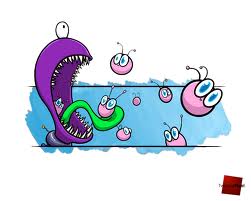maw
英 [mɔː]
美 [mɑː]
- n. (动物的)胃;嗉囊(鸟的);(动物的)咽喉
- n. (Maw)人名;(英、缅)莫
星级词汇:

中文词源
maw 胃,咽喉,无底洞
来自古英语maga,胃,来自Proto-Germanic*magon,袋子,胃,来自PIE*mak,皮袋。引申词义咽喉,无底洞。
英语词源
- maw (n.)
- Old English maga "stomach" (of men and animals; in Modern English only of animals unless insultingly), from Proto-Germanic *magon "bag, stomach" (cognates: Old Frisian maga, Old Norse magi, Danish mave, Middle Dutch maghe, Dutch maag, Old High German mago, German Magen "stomach"), from PIE *mak- "leather bag" (cognates: Welsh megin "bellows," Lithuanian makas, Old Church Slavonic mošina "bag, pouch"). Meaning "throat, gullet" is from 1520s. Metaphoric of voracity from late 14c.
权威例句
- 1. The war swallowed up many young men into its maw.
- 战争把许多青年男子吞进了它的无底洞.
- 2. Whut'll happen ter Maw an'Poke?
- 啊,上帝,思嘉小姐!
- 3. He felt the maw heavy and slippery in his hands and he slit it open.
- 他觉得鱼胃在手里重甸甸、滑溜溜的,就把它剖开来.
- 4. Sea cucumber, maw, squid must be made transparent to the soft.
- 海参 、 鱼肚 、 鱿鱼均必须发透至软.
- 5. Entire stars can be stripped and pulled into the bottomless maw.
- 这个无底洞甚至将整个星球分解后吸入.
